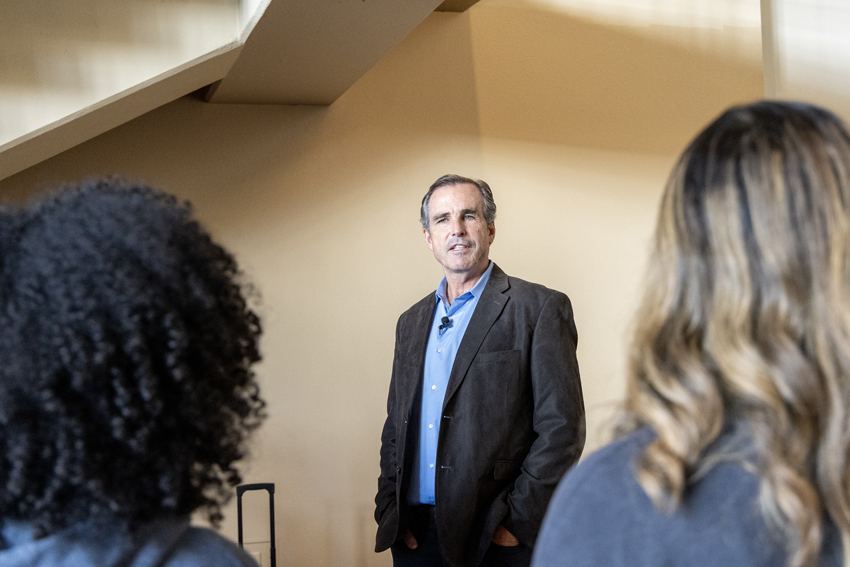After typing a sappy, romantic e-mail to a love interest, the message somehow ended up in the inbox of a youth pastor. When body language and tone no longer contribute to communication, the e-mail will be taken at face value.
With constant instant communication on the World Wide Web and cell phones, it is easy to make an error in a message which could be considered offensive, threatening or unexpected.
Breanne Alcorn, ’09, uses text messaging on her cell phone. She realized how important it is to re-read all messages when she made an embarrassing mistake last year.
?I was texting a boy that I had a crush on,? Alcorn said, ?but I accidentally sent one of the text messages to my dad. It was really awkward with the way my dad reacted.?
Merlin Mann?s blog at 43 Folders shares ideas on how to write effiecient and error-free e-mails.
?Turn off automatic checking completely,? Mann says. ?Your well-written message can and should be as concise as possible. That saves everyone time.?
A hasty mistake can cause long-term effects. From easily amended yet awkward situations to catastrophic aftermaths such as termination from a job, mistakes in an e-mail can become a problem.
Mathew Stump, ’10, frequently uses a Comcast e-mail account. He experienced a similar situation when he tried to e-mail a friend about an inside joke but sent the message to his mother.
?The joke was completely harmless and also very inappropriate,? Stump said. ?My mom sent me back a frantic message asking what I was talking about, so I had to explain the joke to her. She understood, but it had a lot of potential to turn into an ugly situation.?
Bridget Kulla at Fast Web provides ten tips for e-mail etiquette.
“Some may be used to including an abbreviation like ?FYI? [for your information] or ?LOL? [laugh out loud] or an emoticon like ?:)?,? Kulla said, ?but they are inappropriate in formal e-mails.?
Students can avoid making errors by double and triple checking all messages. Natalie Douty, English teacher, recalls a time when some of her personal information was unintentionally leaked.
?My husband asked me to send him some information about our car insurance,? Douty said. ?Somehow, I sent the message to him and also to a bunch of friends. After that, I sent out another mass e-mail explaining the mistake. Everybody thought it was really funny.?
CJ Haydock, computer teacher, responds to at least 75 e-mails each day.
?When you are e-mailing, you need to double and triple check what you are sending and make sure everything is exactly the way you want it,? Haydock said. ?Multitasking creates room for mistakes.?






